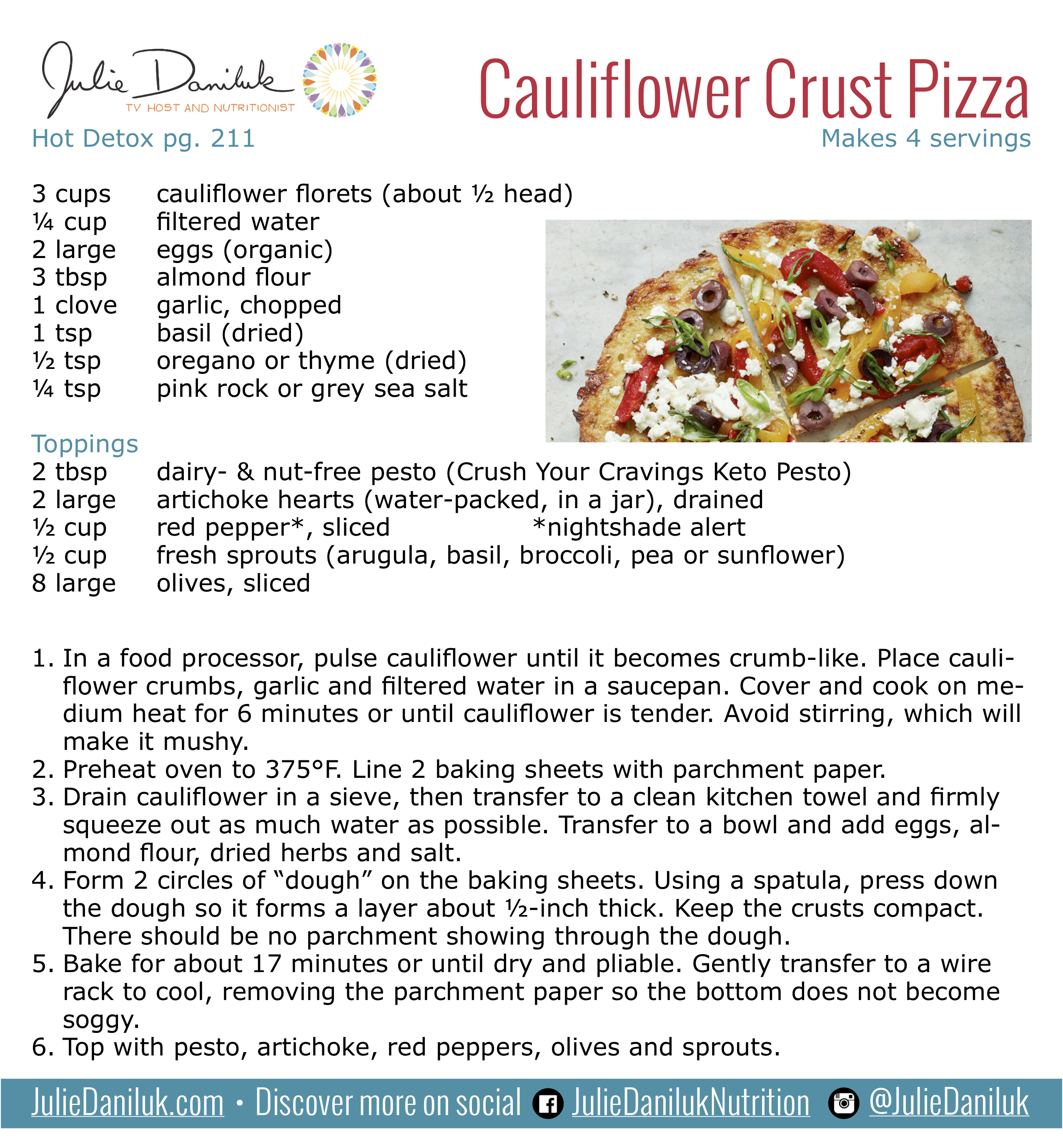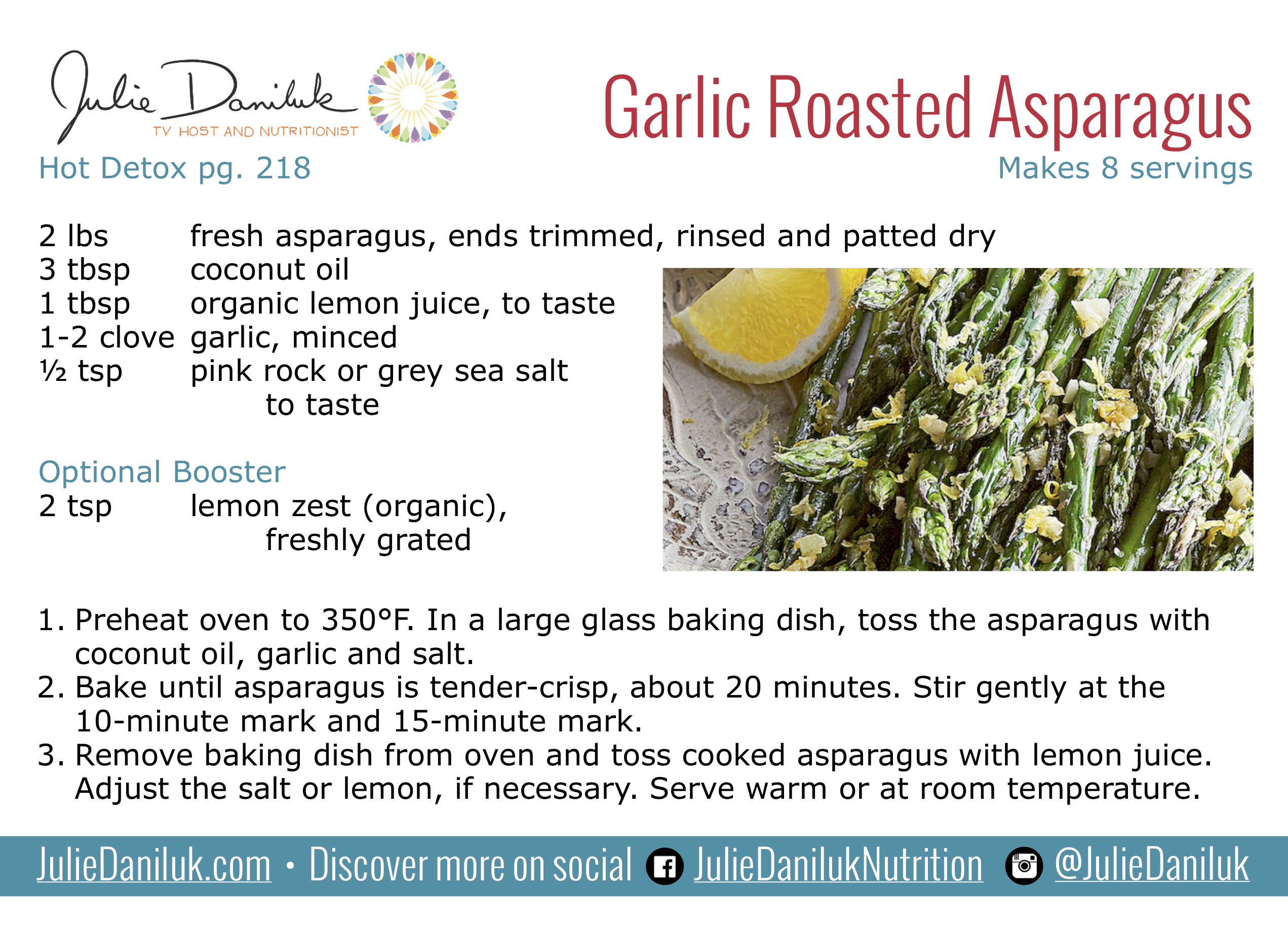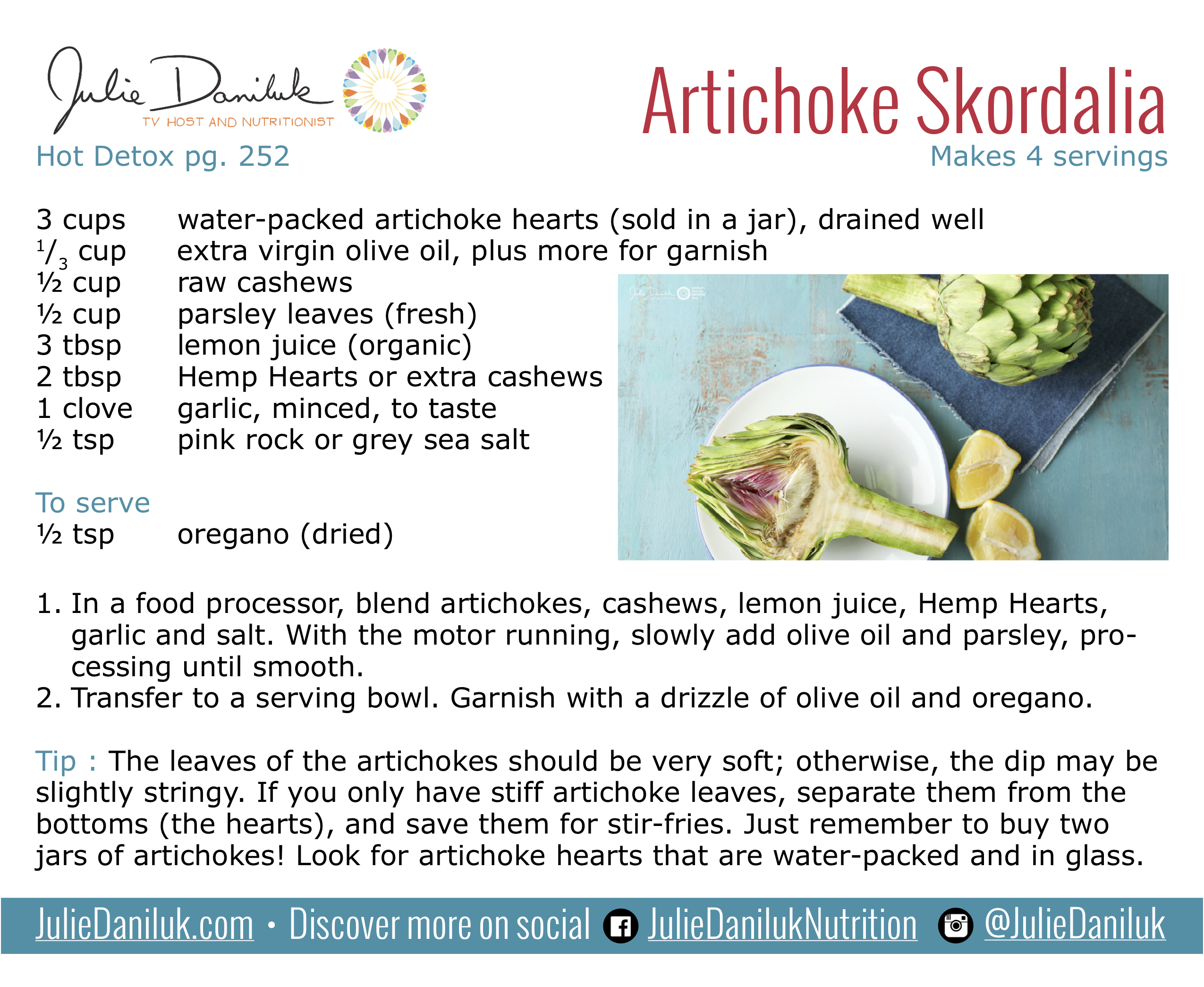The Ketogenic Diet | pros & pitfalls of a low-carb, high-fat lifestyle + Keto Recipes

If you've been following a healthy menu (like the one outlined in my book, Hot Detox), and still feel like you need help with your health issues, you may want to explore the immune-balancing effects of a lower carb, higher fat menu called, The Ketogenic Diet. It is incredibly beneficial if you suffer from autoimmune and neurological conditions, and is even being researched for its ability to prevent cancer. However, the 'keto plan' is not for the faint of heart because it requires the complete avoidance of fruit, starchy vegetables and ALL grains. For some, the flavour sacrifice is worth the effort.
Say "Yes!" to The Ketogenic Diet
1. The Ketogenic Diet can decrease your appetite.
Is it possible to have a diet that can curb your appetite? Yes, it is. The Ketogenic Diet has, in studies, been shown to reduce appetite. Many factors play a role in its hunger-suppressing effect, from greater satiety to hormonal alterations. A low-carbohydrate Ketogenic Diet tends to be more filling because of its higher protein and fat content, leading to better satiety and fewer food cravings, resulting in a lower total caloric intake. In addition, The Ketogenic Diet tends to increase ketone leveyourls in body, which then suppresses ghrelin (a potent stimulator of your appetite).1
2. The Ketogenic Diet can boost weight loss – especially abdominal fat.
When it comes to excess body fat, there is one area where it is especially risky – around your abdomen. Abdominal fat is a strong risk factor for Heart Disease and Diabetes, which is why it is important to maintain a healthy waist-to-hip ratio. The Ketogenic Diet can help with that. When compared to other diets (low fat diets, for instance), The Ketogenic Diet has a distinct advantage for weight loss, total fat loss and, most importantly, total abdominal fat loss. Although this effect was shown to be more significant in men, it can still offer benefits for women.2
3. The Ketogenic Diet can improve neurological conditions & mood disorders.
It's well known that The Ketogenic Diet is clinically useful in seizure disorders – and is also potentially favourable for other neurological conditions and mood disorders. While still in the very early stages of research, animal studies and small clinical studies have found it to be beneficial as an adjunctive therapy for Alzheimer’s and Parkinson’s diseases, ALS and migraines. Mood stabilizing properties have been hypothesized and shown in animal studies, and The Ketogenic Diet is presently being studied in humans at the University of Tampa in Florida.3 4
4. The Ketogenic Diet can improve Diabetes, blood sugar balance and insulin sensitivity.
Evidence shows that The Ketogenic Diet leads to greater improvements of HgA1c, fasting glucose, fasting insulin and weight loss than a diet that ranks high on the Glycemic Index (GI).5 The Ketogenic Diet stabilizes blood glucose levels, leading to fewer cravings and an improvement in energy. In addition, there is greater improvement of insulin sensitivity and greater weight loss as compared to other diets.6
5. The Ketogenic Diet could boost athletic performance.
Evidence of The Ketogenic Diet’s effect on athletic performance, muscle growth and strength is mixed. One study has demonstrated that The Ketogenic Diet increases blood antioxidative capacity and reduces total oxidative stress in athletes. While the research on whether it can offer benefit when it comes to athletic performance is inconclusive, it does not, for the most part, seem to negatively impact athletic performance. The Ketogenic Diet does, however, result in adaptations leading to high rates of fat oxidation. Plus, following The Ketogenic Diet has shown promise for free divers aiming to extend bottom times and benefitting all athletes from additional ketones.7 8
With so many benefits to following The Keto Diet, why are so few of us trying it?
- It takes amazing willpower to resist healthy carbs in season. How can you miss out on strawberry season, peach season and cherry season (especially in Canada), when you have such a short window to enjoy these local foods? Not to mention turning down beautiful homemade dinner from a loved one because they aren't aware that a sweet potato will blow you out of your ketogenic state... a state that you've fought so hard to get in.
- Following The Keto Diet means missing out on a lot of nutrition. All fruits and bright starchy veggies (forbidden on The Keto Diet) contain high levels of anti-inflammatory phytonutrients. According to Traditional Chinese Medicine (TCM) theory, starchy orange veggies (like squash) are considered very healing to the digestive system and soothing to the spirit. Further, it means abandoning the resveratrol in red grapes, polyphenols in dark fruits (like blueberries), or compounds, like lutein and zeaxanthin, in cherries. In short, a keto menu seems rather monochromatic and following the diet requires making extra effort to prevent vitamin deficiencies.
- Constipation is common when following The Keto Diet because it can be low in fibre. For example, keto-friendly artichokes, asparagus and other dark green veggies need to be eaten more often and in greater quantities to get enough fibre to keep your stools bulked up. Luckily, chia seed and flaxseed will help to keep things regular. That said, Medium-Chain-Triglyceride (MCT aka coconut) oil often acts as a laxative when first introducing it into your diet, so it’s wise to proceed with caution when trying this key component of The Keto Diet.
- The “keto flu” is nasty. When becoming fat-adapted, prepare for a week of your body complaining. Body aches and extreme fatigue are common during the time your body switches over to making its own ketones. The most important advice I can offer is to keep your electrolyte minerals super high. Ketone production requires major amounts of minerals and if you don’t eat enough of them, you may find yourself feeling like a wet noodle.
- The ketogenic lifestyle can be hard on your thyroid. A recent study found that children, after 9 months on The Keto Diet, showed signs of hypothyroidism. Many adults report this as well, so take caution if you have a delicate thyroid.
The hardest part of my own ketogenic experiment was crashing blood pressure. As I stated above, ketones require tonnes of minerals, including sodium. My blood pressure went as low as 79/45. That is dangerously low, so increase unrefined salt in your food if you need to keep your blood pressure elevated.
If you are slender, athletic or suffering from adrenal fatigue, you may find the ketogenic lifestyle is a blood sugar balancing act.
Consider exploring the use of extra therapeutic ketones that will allow you to use both carbs and ketones as fuel. Therapeutic ketones can provide your body with a secondary fuel source, allowing for greater energy and performance without a harsh restriction in carbohydrates.
My advice is to try a fat-fueled, low-carb program to start and, if you feel great, proceed to jump further into the benefits of ketones!
Even if you don’t want to try The Keto Diet, the use of ketone supplements can greatly increase the level of ketones in your bloodstream, which your body uses for powering up its vital organs. My husband Alan and I were so impressed with the Pruvit product, he became a distributor. For more information regarding ketone supplements, reach out to http://riseup.pruvitnow.com.
Delicious Low-Carb Keto-Friendly Recipes






References
1. Sumithran P., Prendergast L., Delbridge E., Purcell K., Shulkes A., Kriketos A., Poietto J. “Ketosis and appetite-mediating nutrients and hormones after weight loss”. European Journal of Clinical Nutrition (2013); 67: 759-764. http://tinyurl.com/y8wpcvw3
2. Volek J., Sharman M., Gomez A., Judelson D., Rubin M., Watson G., Sokmen B., Silvestre R., French D., Kraemer W. “Comparison of energy-restricted very low-carb and low-fat diets on weight loss and body composition in overweight men and women”. Nutrition and Metabolism. (2004); 1: 1-13. www.ncbi.nlm.nih.gov/pmc/articles/PMC538279/
3. McClernon F., Yancy W., Eberstein J. Atkins R., Westman E. “The effects of a low-carbohydrate ketogenic diet and a low-fat diet on mood, hunger, and other self-reported symptoms”. Obesity. (2007); 15: 182-187. http://tinyurl.com/y92nlzoe
4. Stafstrom C., Rho J. “The ketogenic diet as a treatment paradigm for diverse neurological disorders”. Frontiers in Pharmacology. (2012); 3: 1-8. www.ncbi.nlm.nih.gov/pmc/articles/PMC3321471/
5. Samaha F., Iqbal N., Seshadri P., Chicano K. “A low-carbohydrate as compared with a low-fat diet in severe obesity”. The New England Journal of Medicine. (2003); 348: 2074-2081. www.nejm.org/ doi/full/10.1056/NEJMoa022637
6. Westman E., Yancy W., Mavropoulos J., Marquat M., McDuffie J. “The effect of a low-carbohydrate, ketogenic diet versus a low-glycemic index diet on glycemic control in type 2 diabetes mellitus”. Nutr Metab (2005); 5: 1-9. www.ncbi.nlm.nih.gov/pmc/articles/PMC2633336/
7. Paoli A., Grimaldi K., D’Agostino D., Cenci L., Moro T., Bianco A., Palma A. “Ketogenic diet does not affect strength performance in elite artistic gymnasts”. Journal of the International Society of Sports Nutrition. (2012); 9: 1-9. www.ncbi.nlm.nih.gov/pubmed/22835211
8. Rhyu H. Cho S., Roh H. “The effects of ketogenic diet on oxidative stress and antioxidative capacity markers of Taekwondo athletes”. Journal of Exercise Rehabilitation. (2014); 10: 362-366. www.ncbi.nlm.nih.gov/pmc/articles/PMC4294438/

